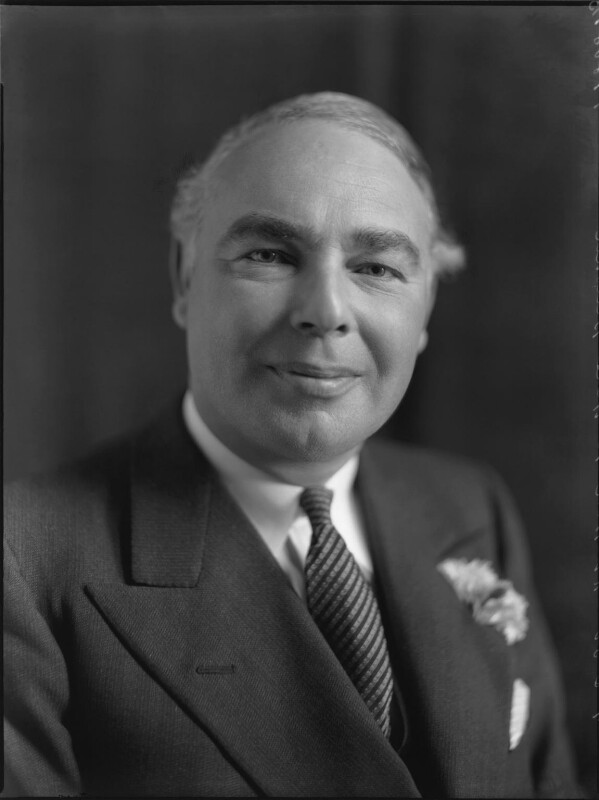Why not Brooke-Popham
OK, I did expect my choice of Lord Gort would create debate, having seen plenty of old posts on various forums that seek to find someone better than Brooke Popham. And obviously some of the same old names that are put forward are deserving of merit. So, here’s my two pennyworths take on it and why I chose Gort, mostly based on some very sketchy observations and Wiki entries. Any and all informed opinion is welcome, regardless of whether it corrects my thoughts or supports them.
Firstly, the position of Commander-in-Chief Far East Command, was, I think, quite a unique post in having command over both the Army and RAF in the Far East Theatre, but not the Royal Navy. Brooke Popham was appointed, and held the rank of Air Chief Marshal, RAF, equivalent to General or Admiral, so I’m going to presume that was the correct rank for this position. His opposite number in the Royal Navy, commanding the China Station was Vice Admiral Layton, but his predecessor had been Admiral Sir Percy Noble, and he was followed, abet very shortly by Admiral Sir Tom Phillips. Furthermore, although Brooke-Popham was replaced by Lt Gen Henry Pownall, I’m not sure Pownall ever took the post, it was quickly folded into the ABDACOM, under General Archibald Wavell. So, with some reservations, I’ve chosen to only consider officers with a rank of Air Chief Marshal or General, or a rank lower, but deserving of promotion.
So why not keep Brooke-Popham, he, as most people in senior roles, was not without some good points, as well as the bad ones we all point out. He’d proven to be a very able administrator, a key player in the infant RAF’s development. His tenure as Governor of Kenya, had given him experience of dealing with the colonial office, and governance in the colonies. He’d then returned to active service, being instrumental in the birth of the BCATP (British Commonwealth Air Training Program). So, he was good at building RAF programs, could work with civilian administrators, didn’t rock the boat, in short, an ideal safe pair of hands. I can’t replace him simply because of what we know now, using just hindsight would be simply wrong. And as a RAF commander, it's hard to get past him.
Keeping this bit simple, the Singapore Strategy of the 1920s and 30’s, which sought to defend British Empire interests in the Far East from Japanese aggression, was based on building a naval base out there, which could service the British main fleet, when it was sent to those waters in times of conflict, saving having to build and maintain a second fleet. An impressive defence of the Naval Base with big coastal guns, and lots of minefield provided local defence of the base, and the infant RAF would provide air cover, with airfields on Singapore Island. Clever heh!
Works fine if you only have one enemy to contend with but by the late 1930s, German rearmament and Fascist Italy were giving great cause for concern, raising questions as to the viability of the plan, but politically it couldn’t be scrapped, especially with Australia’s defence so dependent on it. So, we British do what we do best, we fudge, and the RAF is given the task of defending the Naval base until the fleet can arrive, who’s timespan was increasingly being rolled back, 90 days, then 180 days. The other thing, with the continuous development of the aeroplane, with ever increasing range and payload, the need to keep the enemy’s aircraft at arms reach meant first Johore and then the rest of Malaya had to be defended to safeguard the base. This explanation is very simplistic, there’s lots more, as many of you know. With me so far?
OK, so now the RAF will defend the base, and Malaya too, and the local RAF commander came up with a total figure of 566 front line aircraft. This in 1940, when Britain is fending off a possible invasion. The Chiefs of Staff trimmed this down to 336 aircraft, but even this was going to take time to provide, with the requirements of the Home Front and North Africa having priority by a long way. In the meantime, the Army is left holding the baby in Malaya, being given responsibility for its defence, while the RAF continues to build the airfields for the expected aircraft, airfields the Army will have to defend.
Churchill, on coming to the conclusion that he has to make the Army and RAF work together, appoints a commander, and historically chose a RAF officer, because, my assumption, this was about building a RAF command that would defend Malaya - Singapore. However, in my ‘What If’, irked by Newell’s performance, and the fact the Army was now the primary defender, Churchill chose an Army commander, Brooke-Popham is gone.



